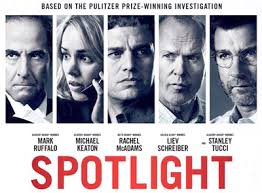

18/01/15
Ben Hopkins seems genuinely pleased. He’s flown in from his home town of Berlin for a special screening of his ‘expressionist’ documentary Hasret (Yearning) at Home, Manchester and it must be gratifying to see a full screening theatre for the event. Hasret is, after all, not the kind of film that usually packs out cinemas. It’s a vibrant love letter to the city of Istanbul and forms the final part of what Hopkins refers to as his ‘Turkish trilogy.’
What appears at first to be a conventional documentary, quickly metamorphoses into much more than that, as elements appear that confirm it is in fact, a kind of meta-fiction. Interspersed with vivid footage shot on the streets of the city, there are elements that appear to have stepped straight out of an MR James story – the unexplained appearance of a ghostly woman in a landscape, a mysterious man who gives Hopkins phone numbers which enable him to speak to dead people. It’s all so cunningly done that you constantly find yourself asking which parts are real and which parts are fake, something that I take up with Ben as we settle ourselves at a table in Home’s second floor bar.
For instance, the film begins with Ben claiming that he was originally commissioned to make a straightforward travel documentary, but was increasingly tempted to go off-brief.’
‘No,’ says Ben, gleefully. ‘That was all lies!’
OK, so how would he describe Hasret?
‘Well, it’s a documentary about Istanbul, but it’s also a documentary about the process of making a documentary. I’m lucky in that I have a body of work that is well-regarded, which allows me to do films like this. For anyone just starting out, the opportunity to make a film about Istanbul that wasn’t just a straightforward travel documentary… well, it would be very difficult. As it is, I struggled to get funding. There’s an element in our televisual culture that edges towards the superficial. Producers would rather see something about the great food on offer, the oysters, the baked goat.’
Amazingly though, we should be aware from the very start that something is up. All that business about Hopkins and his two man crew arriving at their destination in a container ship, because the company that commissioned the film ‘couldn’t afford plane tickets’…
‘Exactly,’ agrees Ben. ‘It would probably be cheaper to fly than to travel that way. I’m saying, right from the beginning, don’t take this entirely seriously.’
There are scenes in the film, I suggest, thinking particularly of the ones shot amidst the city’s late night club scene, that suggest Ben and his team might occasionally have been in danger of being caught up in violence.
‘I’ve been robbed in Istanbul once and ripped off another time, and sure I’ve witnessed a couple of fights, but I’ve never personally felt physically threatened,’ he assured me. “The fights are usually about somebody disrespecting somebody else’s sister and as I don’t go around disrespecting anyone, I usually get by.’
Much of the film is concerned with the gentrification of Istanbul, how some of the oldest parts of the city being bulldozed to create swish new homes for the wealthy. I ask Ben how he feels about that.
‘Very sad,’ he says. ‘’Of course, all cities change and regenerate. This building we’re sitting in now, for instance, is brand new and replaced something that was here before. Sometimes these things are good. Sometimes they’re inevitable. The difference in Turkey is that often there’s an entirely politically motivated intention for the changes… so for instance an area that’s home to communists and shiites will be bulldozered, simply to disperse the people who live there, to teach them a lesson. I’m afraid that happens a bit too often in Turkey.’
I ask Ben if he has anything else in the pipeline.
‘I actually have another film opening in Britain on Friday, called Lost In Karastan. It’s a film I made before this one and I’ll be doing some publicity for that later in the week.’
And given a substantial budget, what would he do next?
‘A horror film,’ he says, without hesitation. He’s clearly a fan of the genre. I ask him is he has an all-time favourite and I’m delighted to learn that it’s one of my favourites too, Jack Clayton’s superb supernatural chiller, The Innocents, a film that these days carries a 12 certificate despite being absolutely terrifying.
I ask if he has already written the screenplay for his horror movie and he smiles and nods. ‘It’s all ready to go,’ he says. ‘All I need now are the actors and…’ He grins ruefully. ‘The budget.’
Ah yes, there’s always the budget.
‘There is,’ he agrees. ‘And that’s the main reason why, if I won the lottery tomorrow, I’d probably give up film-making.’
‘Really?’ I ask incredulously.
‘Yes. Don’t get me wrong. I love filming, I love writing, I love working with the actors and I love working with the producers. I just hate the process of trying to raise money.’
And with that, he moves on to his next interview and we head out into the night. My feeling is, we should all watch this space. Provided Ben doesn’t win the lottery… and let’s face it, what are the odds? -there should be a really chilling horror film with his name attached heading in our general direction in a year or so. Until then, Hasret is screening in London tonight (19th January) at the Bertha DocHouse, Curzon Bloomsbury, before a wider opening in Turkish cinemas in March, so if you get the chance to go along to the event, please do. It’s a remarkable and enigmatic film that deserves a wider audience.
Philip Caveney












